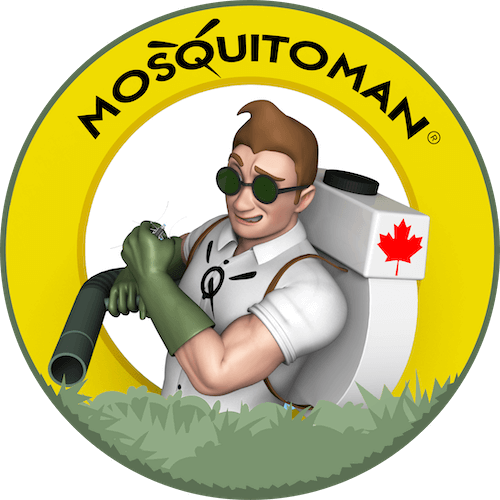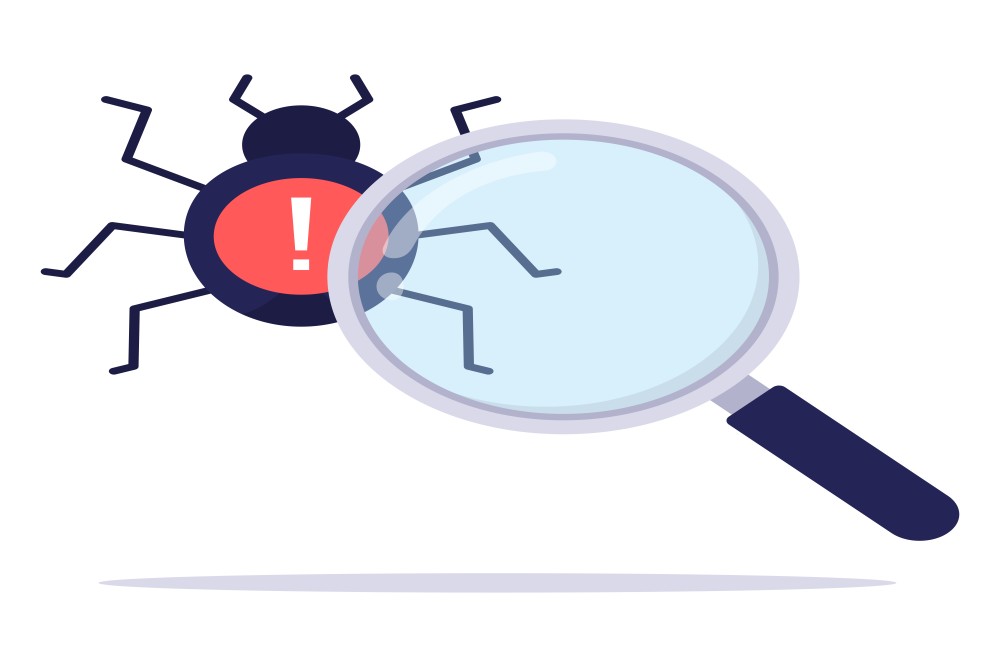Ticks play a vital role in ecosystems by contributing to the food chain and helping control animal populations. Understanding what ticks are good for can reveal their ecological significance and impact on biodiversity. Learn about our tick control services in Canada.
The Role of Ticks in Ecosystems
How do ticks contribute to biodiversity?
When we think about biodiversity, ticks might not be the first thing that comes to mind. However, these tiny creatures play a significant role in ecosystems. Ticks are part of a complex web of life and contribute to ecosystem dynamics. They serve as food for various species, like birds and reptiles, which helps keep nature balanced. Also, by feeding on different hosts, ticks can influence the genetic diversity among animal populations. It’s interesting how such small creatures can have a big impact on the world around us.
What is the importance of ticks in nutrient cycling?
Now, let’s talk about how ticks help with nutrient cycling. This process is crucial for maintaining soil health and ecosystem stability. Ticks interact with many organisms and help move nutrients across different areas. This supports environmental balance and makes ecosystems more resilient. As part of this cycle, ticks support the growth of plants and other organisms in their habitats. Who would have thought these small pests could play such an important ecological role?
How do ticks interact with their host species?
Ticks have a special relationship with their host species. As parasites, they take benefits at the expense of other animals. But this interaction isn’t all bad. Through coevolution, ticks and their hosts have developed a balance over time. This affects animal behavior and helps maintain vertebrate diversity. The relationship between ticks and their hosts shows that nature finds balance—even with parasitism involved.
If you want to learn more about ticks or find out how to prevent tick bites, feel free to look around our site. Remember, even the smallest creatures matter in our big ecosystem!
Learn more: Tick Bites and Red Meat Allergy: Understanding Alpha-Gal Syndrome and How to Remove a Tick from a Dog Safely: Expert Tips and Tools
Ticks and Their Natural Predators
Who are the natural enemies of ticks?
In many ecosystems, ticks have a variety of natural predators. You might wonder, “Who actually eats ticks?” There are several animals that do! Birds, small mammals, reptiles, and even parasitic wasps help control tick populations. These interactions between species are essential for keeping nature balanced.
Take the opossum, for example. This animal can eat thousands of ticks each week. By doing this, opossums play a big part in managing tick numbers, which shows how important biodiversity is in their habitat. So, if you see an opossum, remember it’s doing its part to reduce ticks!
What role do birds play in controlling tick populations?
Birds like robins and starlings aren’t just looking for worms when they hop around your yard. They also play a key role in controlling tick numbers. Birds are part of the food web and help manage ticks naturally through predator-prey interactions.
In areas full of wildlife, birds act as natural pest controllers. They pick up ticks from the ground and from larger animals. This not only helps reduce tick populations but also supports biodiversity. So, when you hear birds singing, they are helping to manage wildlife by keeping tick numbers down.
How do predatory insects impact tick numbers?
Predatory insects may be small, but they have a strong impact on tick populations. Ants, for example, are busy creatures that help control ticks and other pests within ecosystem dynamics.
Through natural pest control, predatory insects help maintain a balance of parasitism in their habitats. By eating ticks, these insects support biodiversity and prevent any single species from dominating. Even the smallest insect plays a big role in keeping tick numbers controlled.
Remember: While ticks are often annoying, they are part of the wider ecological system. Learning about their interactions with natural predators helps us understand the complex world around us. For more tips on managing ticks and maintaining a balanced ecosystem, contact Mosquito Man for expert advice and resources!
Ticks as a Food Source
Which animals feed on ticks?
Ticks aren’t just annoying pests; they are also food for many animals. This helps create a healthy ecosystem.
- Birds: Birds like guinea fowl and chickens eat ticks. They help control tick populations.
- Mammals: Some small mammals, such as certain rodents, also eat ticks.
- Reptiles: Lizards and other reptiles may include ticks in their diet.
- Insect Predators: Wasps and other insects that prey on ticks can also reduce their numbers.
- Parasites and Predators: Other natural predators, including some parasites, play a role in the food chain.
By eating ticks, these animals support ecosystem dynamics and boost biodiversity through predator-prey interactions.
How does tick consumption affect the food web?
Eating ticks affects the food web and ecosystem in several important ways:
- Nutrient Cycling: When animals eat ticks, nutrients move through the ecosystem, supporting life.
- Biodiversity and Balance: By controlling tick populations, predators help maintain ecological balance and enhance biodiversity.
- Natural Pest Control: Animals that eat ticks act as natural pest controllers, reducing the need for chemical treatments.
- Ecosystem Services: These interactions highlight the important roles ticks play in their ecosystems, showing how nature is interconnected.
Next time you see a tick, remember that it has a role in maintaining balance in the ecosystem. This ongoing cycle of predator-prey interactions helps keep habitats thriving.
For more information on protecting yourself from ticks or tips on tick removal, visit our additional resources. At Mosquito Man, we’re here to help you stay informed and safe!
Ticks and Disease Control
Can ticks help regulate animal populations through disease transmission?
Have you ever thought of ticks as small but key players in the ecosystem? Surprisingly, these tiny creatures can have a big role in controlling animal populations through disease transmission.
- Ticks and Disease Transmission: Ticks are known for spreading diseases not only to humans but also within animal populations. They can transmit pathogens that impact the numbers of certain species.
- Ecosystem Dynamics: By affecting the health and survival of host species, ticks can influence the balance of animal populations. This can change the whole ecosystem, including the availability of prey and predator-prey relationships.
When you’re hiking and feel something crawling on you, remember that while ticks should be avoided, they do play an important role in nature.
What is the ecological impact of tick-borne diseases?
Tick-borne diseases might seem like just an annoyance, but they actually have important effects on the environment. These impacts go beyond just making us itch.
- Pathogens and Biodiversity: Ticks carry diseases that can affect biodiversity. When they spread pathogens, some species may become more vulnerable, causing changes in how species interact and in overall biodiversity.
- Wildlife Conservation: Tick-borne diseases can threaten endangered species, posing challenges for conservation efforts. Understanding these threats is needed for effective wildlife management.
- Natural Pest Control: Interestingly, tick-borne diseases can help with natural pest control. By impacting certain animal populations, they might help keep other species in check, supporting environmental health.
Who knew such small creatures could have such a large impact on our world? Keep this in mind next time you hear about ticks—they’re more than just pests; they’re important parts of our ecosystems.
For more tips on tick prevention and how our team at Mosquito Man can assist you, check out our resources linked throughout this page. Your understanding of these tiny ecosystem managers just got a bit bigger!
Ticks and Environmental Monitoring
How can ticks serve as indicators of ecosystem health?
Think of ticks as tiny environmental detectives. They play a big part in tracking their ecosystems. Ticks are part of a complex web that includes animals, plants, and other organisms in nature. They’re very sensitive to changes in their environment, making them good indicators of ecosystem health.
Ticks interact with different host species. Their presence or absence tells scientists a lot about biodiversity and ecological balance. For example, if tick numbers suddenly rise, it might mean there are fewer natural predators or more host animals. This information helps scientists understand ecology and keep ecosystems balanced.
Ticks also carry diseases that affect certain species more than others. This gives clues about the health of animal communities. Monitoring these patterns helps researchers track changes in wildlife and their habitats. So, while ticks might seem like annoying pests, they provide important insights into our environment’s health.
What information can ticks provide about climate change effects?
Ticks and climate change together form an interesting topic. As climate change affects weather and temperatures, the habitats of many species, including ticks, are shifting. Because ticks are sensitive to environmental changes, they offer valuable data about how climate change impacts ecosystems.
Scientists study ticks to see how rising temperatures and changing weather patterns affect nature’s balance. For example, warmer climates may make tick seasons longer and expand their habitats. This can increase interactions between ticks and their host species, disrupting environmental balances.
Ticks help scientists assess how well ecosystems can handle and recover from changes. By looking at how tick populations change with the climate, researchers can predict the broader impacts on plant-animal interactions and habitat conservation efforts. Ticks offer crucial information for understanding the ecological effects of climate change.
Frequently Asked Questions: FAQs About What are ticks good for
What role do ticks play in the ecosystem?
Ticks are tiny creatures that are important in ecosystems. They serve as food for birds and reptiles, which helps keep biodiversity balanced. Ticks also help control animal populations by spreading diseases.
Are there any benefits to having ticks in nature?
Yes, ticks have some positive roles. They feed on animals like deer and mice, which can help with natural selection. Ticks also allow bacteria and viruses to find new hosts, increasing genetic diversity in ecosystems.
How do ticks affect humans and animals?
Ticks can spread diseases like Lyme disease to humans and animals by feeding on their blood. This makes understanding tick behavior important for monitoring disease risks and improving public health strategies.
Do ticks have any natural predators?
Yes, ticks are eaten by creatures like birds, wasps, and small mammals. These predators help keep tick populations in check and maintain ecological balance.
What regions are known for high tick activity?
Ticks are often found in moist, dark places like forests, grasslands, and wetlands. Regions with high tick activity include areas like the Gulf Coast and California. Monitoring these areas helps prevent the spread of diseases.
Can ticks contribute to scientific research?
Ticks are important for scientific research because they spread zoonotic diseases. Studying their interactions with hosts and pathogens helps us understand disease ecology and improve vaccines and public health management.
How can I protect myself from tick bites?
To avoid tick bites, use insect repellent, wear protective clothing, and check for ticks after being outdoors. You can also make your yard safer by keeping the lawn mowed and removing leaf litter.
What steps should I take if bitten by a tick?
If you get a tick bite, remove it quickly with tweezers and clean the area with antiseptic. Watch for any symptoms and see a doctor if needed. Early detection is key for managing possible infections.
What are ticks good for – Key Insights
- Ticks might seem creepy, but they are crucial to ecosystems, serving as food for animals like birds and wasps, and boosting biodiversity.
- Although ticks spread diseases like Lyme, they help in disease surveillance, allowing medical professionals to monitor and study pathogens.
- In the circle of life, ticks assist bacteria and viruses in finding new hosts, which is essential for the evolution of these microorganisms.
- Ticks thrive in moist, dark ecosystems, balancing species interactions and supporting ecological resilience and habitat conservation.
- By affecting the behavior and health of their hosts, ticks play a role in nutrient cycling which impacts ecosystem stability and function.
- The presence of ticks in areas like Minnesota and Texas shows their adaptability to different environments and climates.
- Despite their reputation, ticks contribute to the genetic diversity of animal populations by being part of natural selection and parasite-host coevolution.
- Ticks are more than just parasites; they influence host resistance and test ecosystem resilience against external pressures.
- Researchers study ticks for potential use in pest control and to understand zoonotic diseases that may affect public health.
- Engaging with tick-related challenges helps develop effective prevention strategies, supports wildlife management, and promotes sustainable coexistence.





